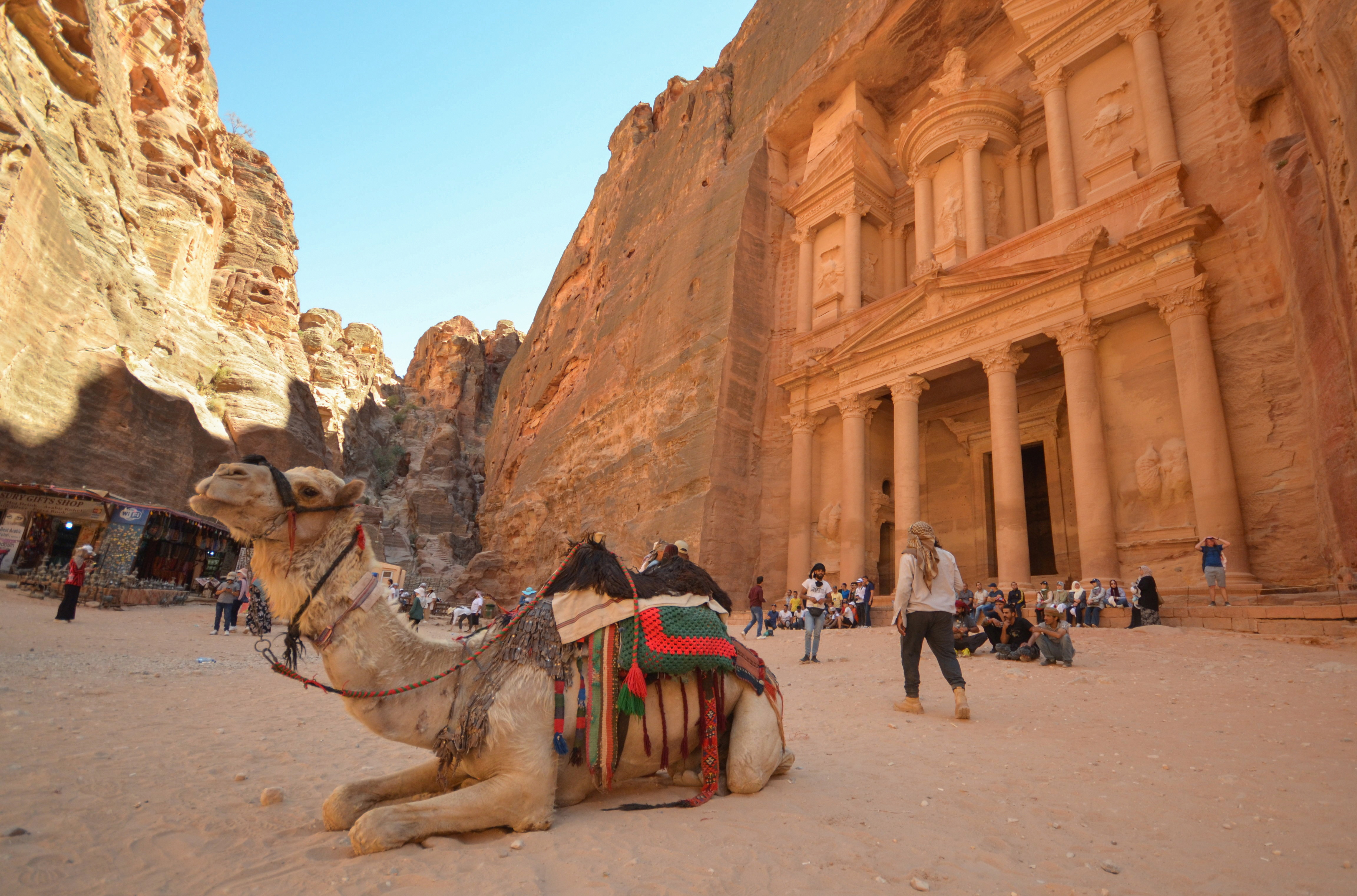The corona virus pandemic proved a disaster for Jordan’s tourism industry and for its economy as a whole, which witnessed its worst phase in decades last year.
“I felt despair, there was no income, no work, there was no support for shop owners,” said Ahmad Nassar, a souvenir shop owner.
Now foreign tourists have started coming back, and the situation is looking more hopeful, Nassar said.
Last week, the European Union included Jordan among a dozen new epidemiologically safe countries as of July 1, and government efforts for reviving tourism appear to be showing results.
This month, officials have announced special measures for Jordan’s “golden triangle”, which includes famous sites like the ancient city of Petra, Wadi Rum and crusader castles, closing the area off to all except for those fully vaccinated.
At the start of July, Jordan government also lifted most lockdown measures after a sharp drop in infections, reopening gyms, pools and night clubs in hotel facilities.
“At the height of the crisis, hotel occupancy did not exceed 2% or 3%,” said Abdul Hakeem al-Hindi, the head of Jordan Hotels Association.
Now occupancy rates in some of Jordan’s main tourist centers are better by around 40-50% in the Dead Sea and the Red Sea port city of Aqaba and around 30% in Amman.
Jordan's government is also taking other steps to bring back the record 3 million visitors Jordan received in 2019, many of whom arrived on low cost European carriers led by Ryanair which resumed flights last month. Abdelrazzak Arabiyat, the director of the Jordan Tourism Board expects the Russian market to grow the fastest in the coming months.
Tags: Jordan
